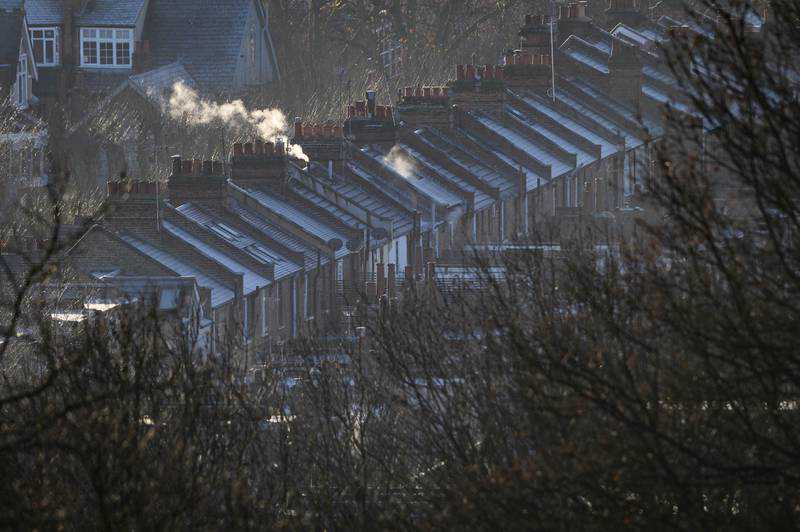Energy crisis: UK government set to help consumers facing higher bills

UK Prime Minister Boris Johnson is preparing to unveil within weeks measures to help consumers facing rising energy bills.
Ministers have concluded that “something needs to be done” before the expected price increases on April 1, according to media reports. What form that will take has yet to be determined, with Mr Johnson expected to attend further meetings on the crisis next week.
This means the Treasury accepts that additional funds are needed as British households face a cost-of-living catastrophe caused by rising taxes, soaring energy bills and high inflation.
The government is expected to decide on what action to take before energy regulator Ofgem unveils a new limit for some tariffs on February 7.
Householders have already been warned that domestic gas and electricity bills could rise as much as 50 per cent in April when the energy price cap is increased.
However, Mr Johnson rejected calls on Wednesday to alleviate pressure on consumers by suspending green levies on household bills.
At a meeting with Business Secretary Kwasi Kwarteng, energy company heads called for the levies, which fund renewable energy initiatives, to be removed from bills, along with VAT.
The utility chief executives also asked the government to provide loans to allow them to extend support to customers and for an increase to the warm homes discount of £140 ($189) a year, which is available to the poorest households.
Mr Johnson’s spokesman said he was not aware of any further changes “at the moment”, when asked if the prime minster would action any of the solutions suggested.
“Obviously, we keep it under review and are listening to those that are most affected,” the spokesman said. But there were no plans to scrap the green levies, he said.
“I think we've seen through the fluctuations in things like gas, that it is important to have secure domestic renewable sources of energy. That's what we're investing in.”
Wholesale power and gas prices have recently shot to record levels, stoking higher inflation and a cost-of-living crisis throughout Europe.
UK households also face the threat of higher shopping bills because suppliers are passing on the costs of spiralling energy prices.
A British Chambers of Commerce survey of almost 5,500 companies found three out of five expect their prices to increase in the next three months.
As a result, UK consumer groups and charities are asking politicians to support low-income customers, who are forced to choose between paying for heat or buying food.
The Resolution Foundation said last month that 2022 is likely to be a “year of the squeeze” on household budgets as wages stall, taxes rise and prices surge, with households facing a £1,200-a-year hit from April.
On Wednesday, Jacob Rees-Mogg, the Leader of the House of Commons, urged the prime minister to ditch a £12 billion increase in national insurance over concerns about the rising cost of living.
Mr Rees-Mogg said the 1.25 per cent increase in the payroll tax should be shelved as inflation and energy bills surge. The increase is designed to help pay for the National Health Service publicly funded healthcare system and the growing cost of social care.
The sign of unrest in Mr Johnson’s Cabinet heaps further pressure on the prime minister to alleviate the impact on ordinary Britons of inflation that has soared to the highest in a decade at 5.1 per cent, with expectations it will rise to 6 per cent by the spring.
UK shares dropped on Thursday, with the FTSE 100 falling 0.7 per cent in early trading, tracking a fall in global equity markets after minutes of the US Federal Reserve's December meeting showed the central bank's hawkish stance on interest rate hikes as it looks to tame high inflation.
Earlier in the week, 20 Conservative members of Parliament wrote a letter to Mr Johnson and Chancellor of the Exchequer Rishi Sunak urging them to remove the 5 per cent VAT charged on energy bills – as well as the environmental levies they say make up almost a quarter of electricity bills.
The extraordinary surge in energy prices, with gas up more than 300 per cent from a year ago, has been exacerbated by the collapse of more than 20 smaller energy suppliers, with their customers transferred to other companies and the costs spread across the industry.
Ofgem is consulting on ways to stagger those extra charges over several years to offer some relief to supplier balance sheets. Funding would be provided by a bank so the costs would not immediately be added to consumer bills.
Previous Story
- Japan starts year's 1st day of work amid...
- Why intelligent government action is needed to solve...
- Masdar to develop Georgia’s largest solar power plant
- Google employees to lose pay and eventually be...
- Energy Dome uses CO2 for long-term power storage...
- Will the chip shortage create a nightmare before...
- Smart city driverless vehicle pilot project planned for...
- Nissan investing in electric vehicles, battery development